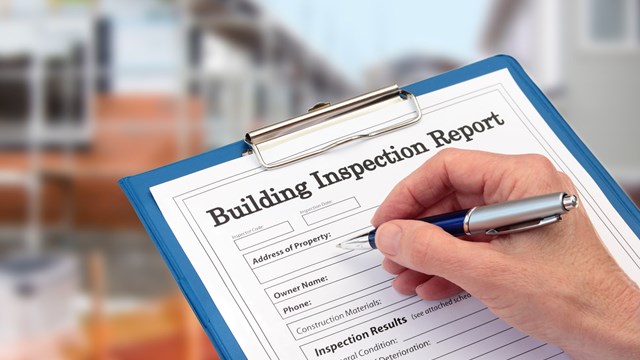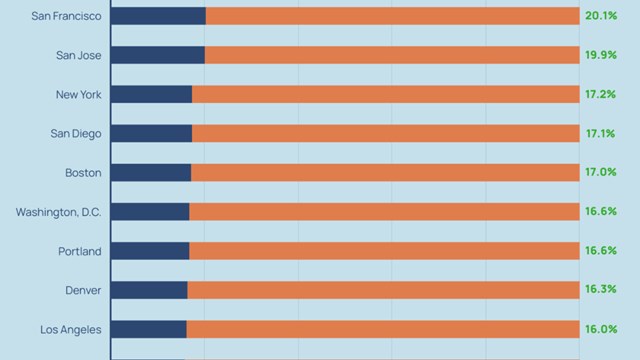They don’t call it “the bottom line” for nothing. When all is said and done, pretty much everything in business (okay, pretty much everything, period) comes down to money. In most business situations, a company CEO or president has the final word on money matters; the HOA business model dictates that fiscal responsibilities are shared between the board and the managing agent. This complex relationship demands managers embrace understanding, communication, and serious patience when it comes to HOA money matters.
A Learning Curve
The major difference between the way HOAs govern their money issues lies in the fact that often, the major decision-makers in an HOA aren’t necessarily qualified to do the job. Of course, anyone with an investment in a building is personally qualified to speak on a matter affecting that investment, but that doesn’t mean they actually know what they’re talking about. A board might be made up of a veterinarian, a homemaker, a musician, and a serial vacationer—sounds like a fun group, but one fit to make major financial decisions? Not so much.
Carl Cesarano, CPA with New York-based accounting firm Cesarano & Kahn says, “The biggest headache when working with HOAs is that you’re working an industry where the board is made up of just average folks. You don’t always have an accountant or someone who knows about the building industry providing direction. You can get just about anyone up to speed, but often the main problem is that you’re not dealing with a professional in a treasurer position. You really have to have individuals on the board who are willing to take the time to learn what they’re doing. A lot of times, people will want the title, but they don’t accept the role as such—not because they’re bad people, but because they just don’t know how to do the job and they don’t have much help.”
The first way a board can get on track is to understand why they are there in the first place. This helps a great deal in putting everyone on the same page, long before one dime is saved or spent.
Jules Frankel is a shareholder at Wilkin & Guttenplan, an East Brunswick-based accounting firm that has worked with over 800 HOAs on their financial pictures. Frankel says that a position on a board is an even bigger responsibility than most people think. “I believe that the primary responsibility of the board of an HOA is to maintain property values within the community. That’s the starting point,” Frankel says. “In doing so, they have a responsibility to make sure they have monies for insurance, landscaping, snow removal, etc. on a daily basis as well as moneys for deferred maintenance and replacement funding. I also think HOA boards have a philosophical responsibility, which is to have people pay as they benefit from something.”
These kinds of tasks are not always easy to execute at all, much less with grace and forethought. That’s where the manager comes in.
No News Is Bad News
The work that a property manager does to fill the gaps in the board’s financial knowledge is no easy job. In fact, it could be argued that guiding a board through the financial landscape is the job—hiring a groundskeeper is peanuts compared with delivering a solid budget.
“First and foremost, managers must help their boards become educated,” says John Stevens, vice president and general manager of Kipcon, Inc, a reserve analysis firm in North Brunswick. “There’s a lot of information out there that is available to give boards the skills and information they need to make solid decisions, and that’s the way a manager can help; they can point them in the right direction. If [managers] are involved in the industry, they know there are publications they can provide to board, and groups they can get involved with to learn about trends, reserves, and operating budgets.”
In an increasingly expensive world, knowledge is power—so for a manager to allow a board to bury its head in the sand about rising fuel costs, for example, is a recipe for disaster. “Prices go up every year,” says Frankel. “Look at the prices at the gas station. Look at the cost of food. To expect maintenance fees to stay the same is naïve. If you allow a flawed budget to pass that will keep assessments artificially low, then what happens is that you shortchange funding for the long-term. People who move out escape paying their fair share, and people who come later end up paying way more. You need to make sure you have a reserve study done often to make sure what you’re putting away is enough. One of the biggest challenges for managers is helping the board to understand they need to take the long view.”
A shortsighted budget isn’t just shortchanging future association members—it’s bad news for current residents, and can have legal ramifications as well. Developing that “true budget” is, according to the experts, the best thing a manager can do to help a community’s financial operations run smoothly. Trying to please people by giving them (false) good news can be disastrous—and even illegal.
“I think that board members who tend to look too much in the short term are concerning themselves with not raising fees in order to look good as board members,” Stevens says. “Residents might think more highly of you, but you’re just putting off the inevitable. If you wait a year or two, you’re going to have to raise those fees anyway, and it will certainly be by a lot more. If you think ahead and take small steps, like saying, ‘This cost needs to increase five dollars this year,’ then it’s not so painful.”
Steven speaks from personal experience as a shareholder, too. “I was on a board where that happened,” he says. “Rates weren’t raised in keeping with costs, so by the third year, we were faced with a significant increase. People came to the board meetings and were pretty mad. If we had addressed those costs as they needed to be addressed, it wouldn’t have been a big deal—people probably wouldn’t even have noticed.”
Due to skyrocketing fuel costs, many buildings are scrambling to find the money to pay the bills. Some HOAs are stripping revenue from reserve funds and counting on flip taxes to fill in the gaps. This year, increases of eight to as much as 50 percent in maintenance or condo charges were seen in many New Jersey co-ops and condos, because taxes, insurance, and fuel costs all saw significant increases—and that’s not the board or manager’s fault. Increasing costs that can’t be controlled shouldn’t be seen as having any bearing on a board’s “reputation.”
Sam Irlander, president and chief executive officer of property management firm Parker Madison Partners, Inc. in New York City reminds managers that they must fully disclose financial matters and provide the best guidance they can to their boards — and not just because it’s the right thing to do. “You have to constantly remind the association manager that their role is that of a responsible fiduciary person,” Irlander says. “They can be held liable for misappropriation of funds. Managers can be sued in class action suits by shareholders or HOA owners if they’re misappropriating funds. Believe me, that gets them listening.”
Anticipate & Communicate
The only way full disclosure of money matters can happen is via fearless communication – and the best way to keep the fear factor down is by opening up those lines of communication. A good mantra to guide board/ management financial discussion might be “Early and Often.” This way, whether you’ve got a board given to spending too much too soon, or one that holds on to their purses with a vice grip, nothing will be too much of a surprise. The building that spends poorly or unwisely is only eating into their equity. It’s everyone’s job to make sure that wasteful spending gets stopped in its tracks and ways to save are investigated.
“The property manager is the real estate professional,” Cesarano says. “Boards sometimes do act without expertise in certain areas, or enter into contracts or agreements without talking to their property manager. Sometimes that comes from a feeling of mistrust, or from self-managed properties that don’t feel they can reach out for help. Larger property management companies can often get insurance deals because of their portfolio, so that should be investigated. No matter what, you need a team approach. You need a board to do its due diligence and include the manager in the discussion when evaluating quotes on services. If you just defer to a property manager, however, you might not get best deal. Everyone needs to do their due diligence.”
As for the board who won’t part with their money at all? According to Cesarano, it’s a different kind of headache.
“There are boards who don’t want to spend a dime,” he says. “But if the building deteriorates, value is being lost. Everyone has to work together: the property manager, the accountant, and the board to come up with long term plan for future repairs, a capital plan, a budget, and a how-to plan. Is there a need for financing? Assessments? Should there be a line item added to the budget? Depending on everyone’s financial needs, this plan is then put together. If the place is falling apart, no one will want to invest in it. That’s the bottom line.”
Reality Bites
The hard truth is that it costs a lot of money to keep an HOA running, whether you’re an urban high-rise or a sprawling suburban development. A manager’s job is to make sure that the board (blessed with accountants, contractors, lawyers or not) understands these costs and the options they have for navigating them. Having an accountant weigh in from time to time is usually a wise move.
“In New Jersey, most HOAs’s hire a property management company that does the physical management of landscaping, etc., as well as keeping the books and records,” says Frankel. “So our role is not to be a bookkeeper, but to be an auditor. We interact with boards once a year at audit time. My responsibility is to explain basic accounting terms and concepts to the board; to show them where they’re at, and then make recommendations as to how they can be proactive in the budgeting process next time. If I walk through an HOA’s financial statements and I see last their last replacement study was done in 1997, I would strongly recommend a new study, because they’re probably not putting aside enough money. If an aging community isn’t putting aside enough for maintenance, I can advise on that. The goal is that a realistic budget be created that fulfills the board’s fiduciary responsibility.”
“The job of a property manager is to not only help the HOA to put themselves into good fiscal heath, but to help them create budgets that put them in good financial shape for the future,” says Irlander. “During the course of their employment, major capital improvements might have to be done and the HOA might not have budgeted for that, so the manager has a responsibility to maintain and/or improve the investment and do financing.”
And, in case there’s a board member out there reading this, we’ve got one more piece of news for you in regards to rising costs: All this brilliant financial advice you get from your managing agent is worth a lot. “Management should be paid well for what they do,” Irlander notes. “Management companies’ costs have gone up, too, but it’s been a while since we’ve seen a pay increase for managers.”
Might we suggest a line item in your next budget?
Mary Fons is a freelance writer and a frequent contributor toThe New Jersey Cooperator.







Leave a Comment